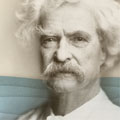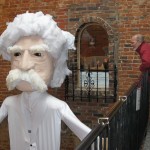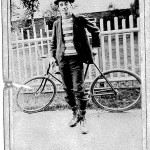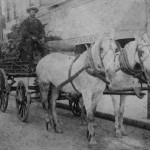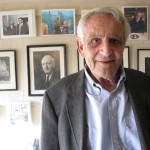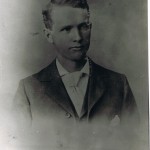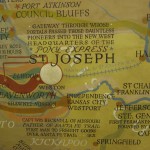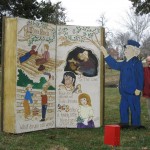“Are you an American?” Mark Twain once wrote in his notebook: “No, I am not an American, I am the American.”
Twain was willing to compare Americans—however arrogant or ignorant—to smug, cultured Europeans and to declare Americans a superior class of being. An Englishman, Twain noted, “does things because they have been done before.” An American, he continued, “does things because they haven’t been done before.” The Germans infect their language with a “parenthesis disease” that allows a “sort of luminous intellectual fog” to substitute for a clarity that might be associated with the straightforward American language; German is a language in which a person can “travel all day in one sentence without changing cars.”
Despite Twain’s declaration that he was the American, some might argue otherwise. For much of his life he was privileged, not poor. His descendants were “Virginia Clemens,” and he married into money. Perhaps the representative American is an American Indian or an African American or the descendant of an immigrant from Ireland, India or Italy. Many Americans arrived involuntarily on slave ships. Others, like my great-grandfather Angelo Francesco Ghiglione, risked death voluntarily in steerage as indentured workers.
The identity of Americans remains a controversial, high-profile issue. President Obama, who describes himself as the son of a white woman from Kansas and a black man from Kenya, chooses to celebrate multicultural America. His story, he says, “is a story that has seared into my genetic makeup the idea that this nation is more than the sum of its parts—that out of many, we are truly one.”
But race, ethnicity, religion, sexual orientation and immigration status remain ways for Americans to define some among us The Other. Many Americans, for example, feel threatened by the size of today’s U.S. immigrant population—30 million, the largest in the nation’s history. The U.S. Census Bureau estimates the United States will be a minority-majority nation by 2042, largely because of immigrants and their birth rate. Some Americans see immigrants, especially Muslims and Mexicans, as the enemy.
What better time, with Mark Twain looking over our shoulder, to crisscross the country to interview Americans about their identity and their nation’s identity. An important message that comes from reading Mark Twain is that humor remains “the one really effective weapon” in the decimating of discrimination over race and other differences.
A second, significant message is that we can change. Twain was on the cutting edge of technological change, early on installing a telephone in his Hartford house, using a typewriter to write and investing in an innovative typecasting machine. Twain also urged us to embrace change of a different kind. He invited us to be better global citizens—more self-aware, more understanding and more compassionate: “”What is the most rigorous law of our being? Growth….We change—and must change, constantly, and keep on changing as long as we live.”
Loren Ghiglione
